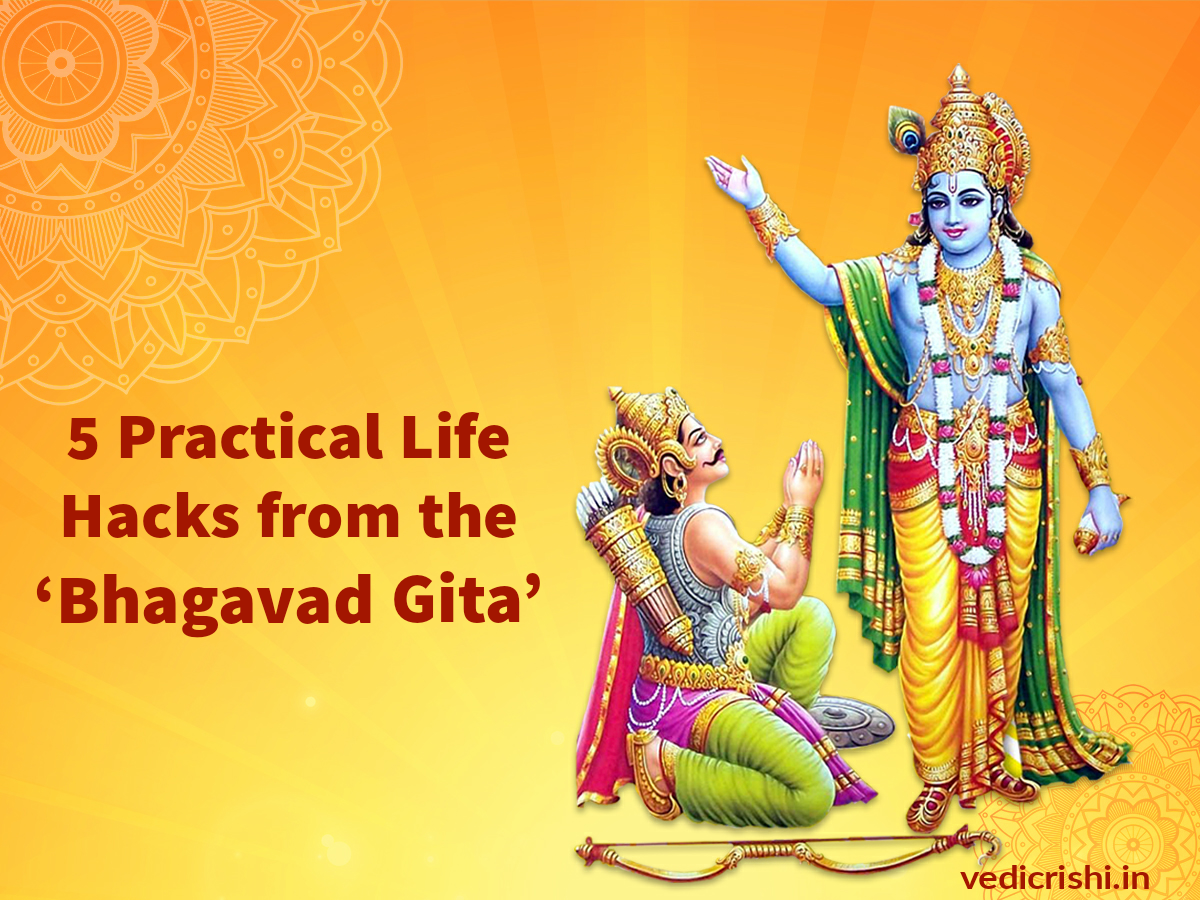The Bhagavad Gita, often referred to as the Gita, is a sacred Hindu scripture that contains profound teachings delivered by Lord Krishna to the warrior prince Arjuna on the battlefield of Kurukshetra. Here are five powerful shlokas (verses) from the Bhagavad Gita along with their meanings:
Chapter 2, Verse 47
“karmany evadhikaras te
ma phalesu kadacana
ma karma-phala-hetur bhur
ma te sango ‘stv akarmani”
Translation:
“You have a right to perform your prescribed duties, but you are not entitled to the fruits of your actions. Never consider yourself to be the cause of the results of your activities, nor be attached to inaction.”
Meaning:
This verse emphasizes the importance of performing one’s duties (karma) without attachment to the outcomes. It encourages detachment from the fruits of actions and motivates one to focus on fulfilling responsibilities without being swayed by desires for personal gain.
Chapter 2, Verse 47
“ananyas cintayanto mam
ye janah paryupasate
tesam nityabhiyuktanam
yoga-ksemam vahamy aham”
Translation:
“To those who always worship Me with exclusive devotion, meditating on My transcendental form, I carry what they lack, and I preserve what they have.”
Meaning:
Lord Krishna assures that those who wholeheartedly dedicate themselves to Him, with unwavering devotion and single-minded focus, will be taken care of by Him. He promises to provide for their needs and protect what they already possess.
Chapter 2, Verse 47
“patram puspam phalam toyam
yo me bhaktya prayacchati
tad aham bhakty-upahrtam
asnami prayatatmanah”
Translation:
“If one offers Me with love and devotion a leaf, a flower, fruit, or water, I will accept it.”
Meaning:
This verse highlights the simplicity of devotion and the universal accessibility of worship. Lord Krishna emphasizes that offerings made with sincerity and love, regardless of their material value, are accepted by Him.
Chapter 2, Verse 47
“sarva-dharman parityajya
mam ekam saranam vraja
aham tvam sarva-papebhyo
moksayisyami ma sucah”
Translation:
“Abandon all varieties of religion and just surrender unto Me. I shall deliver you from all sinful reactions. Do not fear.”
Meaning:
In this verse, Lord Krishna urges Arjuna to relinquish all other paths and completely surrender to Him alone. He promises liberation from all sins and assures Arjuna not to worry, emphasizing the power of surrendering to the divine will.
Chapter 2, Verse 47
“iti te jnanam akhyatam
guhyad guhyataram maya
vimrsyaitad asesena
yathecchasi tatha kuru”
Translation:
“Thus, I have explained to you this knowledge that is more confidential than all others. Deliberate on it deeply, and then do as you wish.”
Meaning:
Lord Krishna concludes the Gita by imparting the most profound wisdom to Arjuna, urging him to contemplate it thoroughly and act according to his own will. This verse underscores the freedom of choice and the responsibility that comes with understanding spiritual knowledge.




